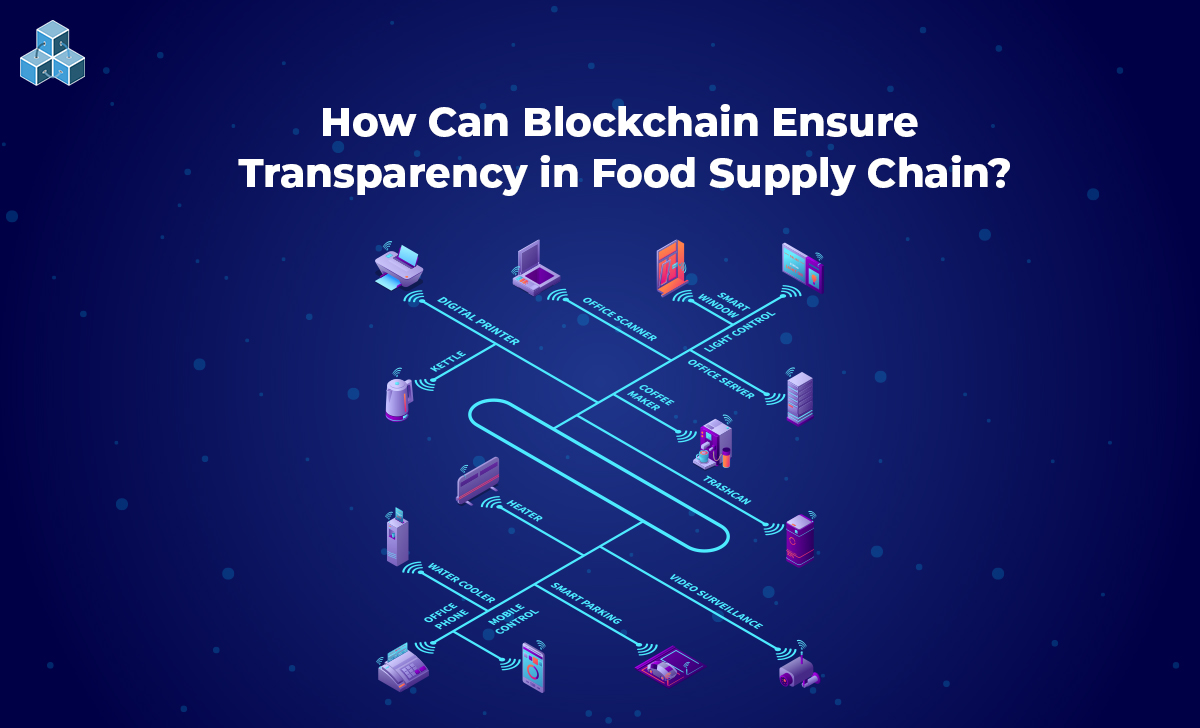Globalization in the food industry increases the complexity of enhancing efficiency and unraveling issues in food supply chains. Blockchain continues to transform various industries, but the most crucial area where it holds immense potential is in offering transparency and traceability. A promising decentralized platform that could benefit food safety and traceability by increasing transparency, security and efficiency by reducing transaction cost and time.
Here we are introducing major blockchain platforms used in the food supply chain and exploring the benefits and challenges of blockchain technology in the food industry. Blockchain technology enables visibility at every step of the food supply chain, increases transaction transparency and food safety and reduces food waste. It provides a digital solution to reduce operational costs and improve efficiency and supply in the food chain. In this blog, we will explore how blockchain is revolutionizing the tracking and monitoring of food products. It enables consumers to make choices, ensuring the safety and quality of food we consume.
What Is The Need For Transparency In The Food Supply Chain
The modern food supply with multiple stakeholders and extensive global reach makes it difficult to ensure transparency and accountability. Lack of visibility into processing and distribution sabotages trust and causes a menace to public health. To resolve these issues a reliable and tamper-proof system is required, and blockchain offers a potential solution. Transparency in the food supply chain is essential for various reasons:
- Food Safety:- Transparency in the supply chain enables the identification of contaminated sources. With the transparency feature, we can track the origin of food and its journey, making it easy to discover the source of contamination and prevent additional harm.
- Consumer Trust:- Transparency allows for building trust between food consumers. Providing information regarding the source, quality, and ethical aspects of food can help build consumer trust. With this information, consumers can make informed decisions about the products they choose to purchase.
- Food Fraud Prevention:- Transparent supply chain can help prevent food fraud, including adulteration and counterfeiting, which poses a risk to the integrity of the food industry. Enabling visibility can help gain insight to verify product authenticity and reduce fraudulent activities.
- Sustainability:- Consumers worry about sustainability, ethical sourcing and fair trade practices. Transparent supply chains provide visibility in social and environmental impact on food production. Consumers then can choose to make choices that promote sustainable agriculture, minimum waste, support local communities and ensure fair treatment of workers through the supply chain.
- Regulatory Compliance:- Compliance with safety regulations is essential for suppliers and producers. Transparency in the supply chain helps streamline compliance efforts by providing a comprehensive record of products. It simplifies regulatory inspection and adherence to quality standards.
- Crisis Management:- In the possibility of any natural incident, accident, or disruption in the supply chain, transparency enables the identification of affected products. Effective crisis management minimizes the impact on public health and maintains consumer trust.
Enhancing Transparency In Food Supply Chain
Blockchain technology can help enhance transparency in Food Safety and Traceability. Using a blockchain-based system, each party in the supply chain, including suppliers, farmers, processors, distributors and consumers, can access the database system. It enables us to build trust between various parties. Real-time visibility in the supply chain system reveals the movement and transformation of food products. Every transaction logs on the blockchain and creates an immutable audit trail.
Blockchain can also facilitate traceability that allows consumers to verify the authenticity and quality of food products. Consumers can get detailed information about the product origin, processing, transportation routes and quality assurance tests. Thus, the consumer can make informed decisions and encourage responsible sourcing.
Thirdly, blockchain can help identify and address the issues regarding food chain supply more efficiently. The decentralized and transparent nature of blockchain allows quick identification of the affected product, thus minimizing the impact on public health.
Overcoming Challenges and Adoption Barriers
Blockchain offers the potential to enhance transparency in the food supply chain. There are various challenges and barriers related to its widespread adoption. Interoperability and scalability to handle voluminous transactions and integration with the existing system are technical issues that ought to be confounded. Moreover, setting standards and regulations for blockchain implementation is essential to ensure trust and consistency in the industry.
Conclusion
Blockchain technology holds great potential to ensure transparency in the food supply chain and address various issues regarding food safety and fraud. Blockchain provides a safe, secure and immutable system for tracking and verifying the origin and journey of food products. As blockchain evolves, its widespread adoption and integration into supply chain management could revolutionize the industry.
As a Blockchain Development Company, we offer comprehensive solutions to your requirements. Contact us today to discuss your ideas and implement them into your project.
 info@blockcoders.pro
info@blockcoders.pro
 Our global presence :
Our global presence :
 |
|
 |
|
 |
|


